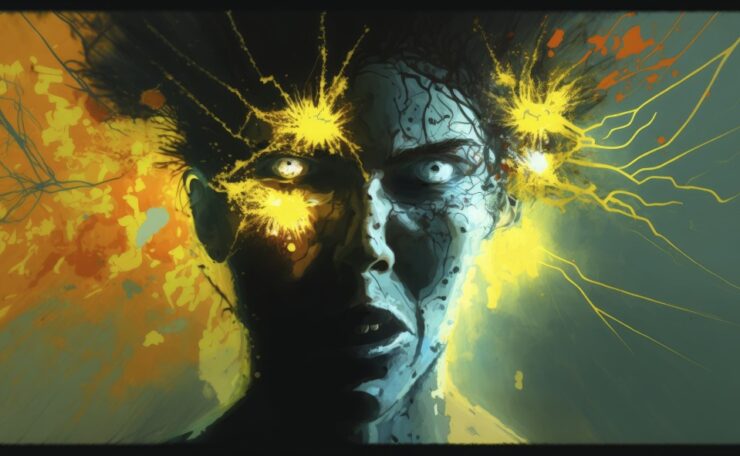As someone who scrutinizes the labor market and understands how mental health and addiction impact workforce productivity, I can tell you that the emerging trend of using psychedelics for mental health treatment is worth your attention. Especially in South Africa, where we grapple with a high prevalence of mental health issues and substance abuse, this could be a game-changer. However, the debate is far from settled.
You may not know that psychedelic therapy is not a new concept; it was quite prevalent in the 1950s and 1960s before getting pushed into the shadows due to stringent drug laws and societal taboos. But now, rigorous scientific studies are demonstrating the efficacy of substances like psilocybin (magic mushrooms) and MDMA (commonly known as ecstasy) for treating conditions like PTSD, depression, and anxiety.
But here’s the crux: these substances are still illegal in South Africa, just as they are in most parts of the world. As promising as the research might be, these treatments are not yet readily accessible to you and your loved ones. Moreover, there’s a critical debate about whether the labor force, your workplace included, is prepared to adapt to a therapeutic model that involves substances currently deemed as “illicit.”
What does this mean for you, as someone dealing with addiction or mental health challenges, and keen on maintaining or improving your job performance? For one, you could potentially benefit from these treatments in the future, possibly experiencing quicker recovery and less time off work. However, the controversial nature of the substances involved could pose challenges, including societal stigma and the risk of misuse.
Given the scarcity of long-term data on the subject, the economic implications for workers in South Africa remain uncertain. Still, one thing is clear: with rising mental health concerns affecting workforce productivity, traditional models of treatment are ripe for disruption. Whether psychedelics will be part of that change or not is a debate you’ll want to watch closely, for both your well-being and your career.
Frequently Asked Questions
- Are psychedelics legal for mental health treatment in South Africa? Currently, psychedelics like psilocybin and MDMA are illegal in South Africa. While there’s growing evidence to support their therapeutic use, they have not yet been approved by medical authorities in the country. So, for now, you and your loved ones should exercise caution and consult licensed healthcare professionals for treatment options.
- What conditions can psychedelics potentially treat? Research is increasingly pointing towards the efficacy of psychedelics for treating conditions such as PTSD, depression, and anxiety. These studies are mostly in their preliminary stages, and you should consult with a medical professional for a diagnosis and treatment plan tailored to your needs.
- Are there any risks associated with using psychedelics for mental health? Yes, while promising, psychedelic treatment carries risks like potential for misuse, adverse psychiatric reactions, and harmful drug interactions. Therefore, you should always consult a healthcare provider before considering this as a treatment option for you or your loved ones.

- What is the current workplace stance on the use of psychedelics for treatment? Workplaces are generally not prepared to adapt to a therapeutic model involving substances currently deemed as “illicit.” You may face challenges like societal stigma and potential disciplinary actions at your workplace if you were to undergo psychedelic treatment. Therefore, you should thoroughly consider these factors and consult your HR department or employment policies if you’re thinking about this treatment.
- How close are we to seeing psychedelics as a mainstream treatment option? The push towards making psychedelics a mainstream treatment is gaining momentum, but we’re not there yet. Regulations are stringent, especially in South Africa, and substantial long-term research is still needed. You should keep an eye on ongoing studies and legal changes if you’re interested in these emerging therapies.
When it comes to the controversial use of psychedelics in treating mental health disorders, you and your loved ones might find yourselves at a crossroads of promise and precaution. On one hand, emerging research shows the potential benefits of psychedelics in treating conditions like depression, anxiety, and PTSD. These therapies could offer new avenues of treatment where traditional methods have fallen short, and that’s genuinely exciting.
However, it’s crucial for you to remember that the regulatory landscape in South Africa has not yet adapted to these new possibilities. Psychedelics are still largely illegal, and their use, even for therapeutic purposes, can lead to legal repercussions. Plus, the scientific community itself is still debating the long-term efficacy and safety of these treatments. Workplaces and society at large have yet to adapt to a model where these “illicit” substances could be seen as legitimate medical treatments. This creates a challenging terrain for you to navigate if you’re considering these options for your mental health needs.
Given the burgeoning interest but current illegality of these substances in South Africa, you might feel a sense of liminality. Yet, the future isn’t entirely bleak. Research is continually emerging, and shifts in policy could happen. What’s crucial for you now is to stay updated, consult with healthcare professionals, and weigh the benefits against the risks carefully.
As Aldous Huxley once said, “Experience is not what happens to you; it’s what you do with what happens to you.” The realm of psychedelic treatment is still unfolding, and how you and your loved ones engage with it could be a part of shaping its future in South Africa.





